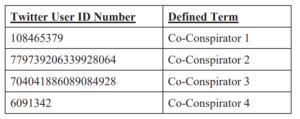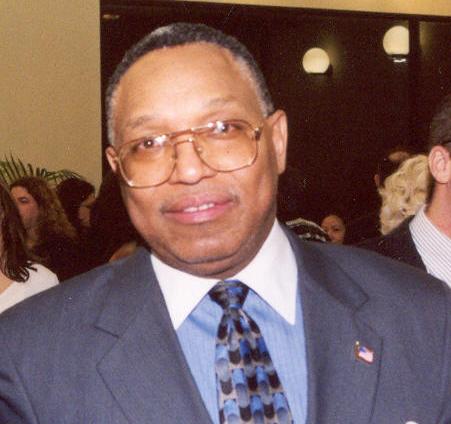Jeffrey Rosen Separated the Investigation that Could Turn Rudy Into a Russian Agent from the Rudy Investigation
When Scott Stedman first reported that the FBI investigation into matters relating to Rudy Giuliani had expanded to include sanctioned Russian agent Andreii Derkach, he suggested it was tied to the SDNY seizure, just days earlier, of Rudy’s phones.
The Federal Bureau of Investigation (FBI) probe of Donald Trump’s personal lawyer Rudolph Giuliani has expanded to include Russia’s spy activities in the 2020 U.S. election, multiple sources tell Forensic News.
The criminal investigation, which led to a dramatic raid of Giuliani’s home and office this week, has for months included the activities of those who worked for or with Russian intelligence agent Andriy Derkach.
Derkach is a Ukrainian Member of Parliament who has been an “active Russian agent for over a decade,” according to the U.S. government.
Kenneth McCallion, an attorney who has represented multiple Ukrainian clients, said that prosecutors have been looking into the actions of Derkach in the 2020 election cycle as part of the Giuliani probe.
“I have been briefed that prosecutors are scrutinizing Derkach as part of the Giuliani probe,” McCallion told Forensic News. The inclusion of Derkach in the FBI’s probe suggests that the potential charges facing Giuliani might extend beyond just Foreign Agent Registration Act violations.
But the NYT last night reported (without crediting Stedman for the earlier report) that, instead, the Derkach part of the investigation is in EDNY, not SDNY, and in that investigation, Rudy is not a subject.
Federal prosecutors in Brooklyn have been investigating whether several Ukrainian officials helped orchestrate a wide-ranging plan to meddle in the 2020 presidential campaign, including using Rudolph W. Giuliani to spread their misleading claims about President Biden and tilt the election in Donald J. Trump’s favor, according to people with knowledge of the matter.
[snip]
The investigation is unfolding separately from a long-running federal inquiry in Manhattan that is aimed at Mr. Giuliani. While the two investigations have a similar cast of characters and overlap in some ways, Mr. Giuliani is not a subject of the Brooklyn investigation, the people said.
Instead, the Brooklyn prosecutors, along with the F.B.I., are focused on current and former Ukrainian officials suspected of trying to influence the election by spreading unsubstantiated claims of corruption about Mr. Biden through a number of channels, including Mr. Giuliani, Mr. Trump’s personal lawyer at the time. It is unclear whether the Brooklyn prosecutors will ultimately charge any of the Ukrainians.
At one point in the investigation, the authorities examined a trip Mr. Giuliani took to Europe in December 2019, when he met with several Ukrainians, according to the people, who spoke on the condition of anonymity to discuss an ongoing inquiry.
At least one of the current and former officials Mr. Giuliani met, a Ukrainian member of parliament named Andriy Derkach, is now a focus of the Brooklyn investigation, the people said. [my emphasis]
In a remarkably stupid comment, the NYT suggests that two investigations started under Trump pose a political problem for Merrick Garland (misstating, at the same time, what Garland promised).
Together, the Manhattan and Brooklyn investigations present a challenge for the Biden Justice Department, which has pledged to remain above the political fray even as it inherited a number of sensitive investigations linked to Ukraine and Russia.
The comment is especially stupid given the public record that suggests the most likely explanation for the two separate investigations is that Jeffrey Rosen took steps after Rudy became the focus of investigative attention in SDNY, to ensure that EDNY could stave off the most dangerous parts of the investigation.
I have pointed out repeatedly that had the Zelenskyy call whistleblower tip been treated like all other national security related tips in the post-9/11 world, investigators would have discovered that it pertained to an already open investigation in SDNY into Lev Parnas and Igor Fruman, an investigation that both Billy Barr and Jeffrey Rosen knew about. It appears that didn’t happen at first because the complaint was viewed exclusively as the transcript of President Trump’s call, and not the backup that tied the call to the influence peddling involving Rudy, Parnas, and Fruman that had been going on for some time.
But, probably with the public release of the whistleblower complaint, SDNY began to investigate how Rudy picked up the effort that Parnas and Fruman had already started in 2018, to get Marie Yovanovitch fired.
On November 4, 2019, SDNY executed searches — searches that Main Justice would have had to be informed about — on Rudy and Victoria Toensing’s cloud accounts. In subsequent months, SDNY would execute searches on Yuri Lutsenko and several other Ukrainians, but not Andrii Derkach, not even after Rudy flew to Ukraine to meet with Derkach personally on December 5, 2019.
In the wake of those searches, on January 17, 2020, Jeffrey Rosen issued a memo putting his trusted deputy, Richard Donoghue, in charge of all Ukraine-related investigations.
As has been publicly reported, there currently are several distinct open investigations being handled by different U.S. Attorney’s Offices and/or Department components that in some way potentially relate to Ukraine. In addition, new information potentially relating to Ukraine may be brought to the attention of the Department going forward. The Department has assigned Richard Donoghue, the U.S. Attorney in the Eastern District of New York (EDNY), who currently is handling certain Ukraine-related matters, to coordinate existing matters and to assess, investigate, and address any other matters relating to Ukraine, including the opening of any new investigations or the expansion of existing ones.
[snip]
Any and all new matters relating to Ukraine shall be directed exclusively to EDNY for investigation and appropriate handling.
[snip]
Any widening or expansion of existing matters shall require prior consultation with and approval by my office and EDNY.
Now that we know about the Rudy search in November 2019, the effect of this memo is clear: it limited the SDNY investigation to the scope of the investigation as it existed at that time, into the Lutsenko attempt to fire Yovanovitch (which was included in the original Parnas indictment), but not Rudy’s meeting with a Russian agent to help Trump win re-election.
Instead, EDNY presided over all the Ukraine goings-on during the election, during which time they could have done something about ongoing tampering. Indeed, after Geoffrey Berman succeeded in ensuring that Audrey Strauss would replace him after Barr fired him to try to shut down ongoing investigations (including, undoubtedly, the one into Rudy and Barr’s friend Victoria Toensing), Barr and Rosen replaced Donoghue with another trusted flunky, Seth DuCharme. Under DuCharme, then, EDNY sat and watched while Derkach interfered in the election and did nothing until — per yesterday’s NYT story — “the final months of the Trump administration.” According to the public timeline, it appears that they just let a known Russian agent play around in our democracy.
There is plenty of risk for Rudy in the existing SDNY investigation. But what Rudy did in response to Lutsenko’s entreaties amounts to lobbying, and so is probably most likely be charged as a FARA case (though Foreign Agent charges are on the table).
With Derkach, however, Rudy was affirmatively attempting to launder Russian-backed disinformation to affect the election. There’s no way that can be charged as lobbying. Plus, the government understood Derkach to be a Russian agent when Rudy attended that meeting (though Rudy claims he was not warned in advance). If Derkach were part of the SDNY investigation, in which Rudy is a subject, then treating Rudy as the Russian agent he has served as in recent years would be on the table.
But in EDNY, per the NYT report, Rudy’s conduct is not at issue.









